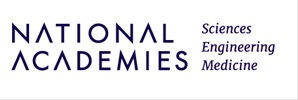FW: National Academies Workshop on Openness+International Engagement in Research 11/14-15 (M-T)
Glenn Hampson
Of possible interest to some OSIers. It looks like the US National Academies plans to take a closer look at the evil twin of open that really hasn’t been looked at to date---the potential risks that openness poses to national security (particularly, one would think, in today’s climate of heightened geopolitical tensions). We do have this concern on our bingo card but it’s been pretty muted to-date. “The diffusion of S&T capabilities around the world has creates new opportunities for collaboration, but some countries and companies have sought to gain unfair or illicit advantage by exploiting U.S. openness. The resultant mix of opportunities and concerns makes it imperative to review and revitalize the procedures, regulations, and mechanisms used to foster open basic research while protecting national security and economic competitiveness.”
From: Friends of FDP list <FDP-FR...@LSW.NAS.EDU>
On Behalf Of Pietrzak, Sara
Sent: Friday, November 11, 2022 1:01 PM
To: FDP-FR...@LSW.NAS.EDU
Subject: National Academies Workshop on Openness+International Engagement in Research 11/14-15 (M-T)
Dear Colleagues,
On behalf of the National Academies of Sciences, Engineering and Medicine, Hannah Buxbaum (Indiana University) and Michael McQuade (Carnegie Mellon University) invite you to Openness, International Engagement, and the Future of the Federally-Funded U.S. Science and Technology Research Enterprise – A Workshop. The workshop, which is being organized under the auspices of the National Science, Technology, and Security Roundtable, will be held on Monday, November 14 and Tuesday, November 15, 2022 from 12-5 pm U.S. Eastern Time. The workshop will be open to the public, and a written proceedings will be published following the workshop.
Basic research, especially federally funded research, remains critical to improvements in living standards, economic competitiveness, health, and U.S. national security. The openness of U.S. basic research activities has been a major contributor to U.S. S&T leadership, which in turn has attracted global talent—talent that has traditionally stayed in the United States—contributing to a vibrant science, technology, and innovation ecosystem. The U.S. no longer enjoys clear leadership across all STEM disciplines and areas of research. American researchers increasingly collaborate with international partners. Preserving and enhancing the strength of the U.S. S&T ecosystem continues to be a top national priority.
The diffusion of S&T capabilities around the world has creates new opportunities for collaboration, but some countries and companies have sought to gain unfair or illicit advantage by exploiting U.S. openness. The resultant mix of opportunities and concerns makes it imperative to review and revitalize the procedures, regulations, and mechanisms used to foster open basic research while protecting national security and economic competitiveness.
This workshop will seek to clarify the current state of U.S. and global science, identify what is most important to the past and future success of U.S.-based research, illuminate and assess risks to U.S.-based research and the S&T foundations of national security, and explore the costs and benefits of specific approaches. The discussion will bring together representatives from the scientific, national security, and law enforcement communities, other relevant Federal agencies, and the private sector to consider approaches for securing and strengthening an open, federally funded scientific research system. The focus will be on universities and federally funded research and development centers (FFRDCs) which together produce the largest share of U.S.-sponsored fundamental research and to which many advanced applications, emerging technologies, and innovation can be traced.
Additional information about the workshop is available here. Register to attend the workshop virtually here.
We hope that you will be able to join us.
Best regards,
Tom Arrison
Director, Board on Research Data and Information
Policy and Global Affairs
National Academies of Sciences, Engineering, and Medicine
500 Fifth Street, NW
Washington, DC 20002
Tel 202 334 3755
Twitter @ThomasArrison
Web: https://www.nationalacademies.org/brdi/board-on-research-data-and-information

############################
To unsubscribe from the FDP-FRIENDS-L list, click the following link:
http://forums.nas.edu/scripts/wa.exe?TICKET=NzM4NTAwIGdoYW1wc29uQE5BVElPTkFMU0NJRU5DRS5PUkcgRkRQLUZSSUVORFMtTPCuYGoBpBAo&c=SIGNOFF
